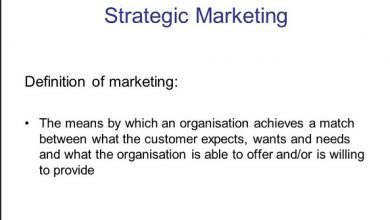What is mentoring in business/role/importance/ benefits
What is mentoring and how does it work?
Mentoring in business is when an experienced entrepreneur with a good reputation in a certain area helps another less experienced professional to overcome obstacles and solve problems in a strategic and simplified way. This way, the part that is learning avoids failures, which saves time and money.
In this way, the mentor is an individual who works or has worked in a similar or similar segment to his apprentice. He has the know-how to anticipate problems and present agile solutions, even in very specific and difficult situations to deal with. After all, he knows how to act in circumstances that are new to a beginner.
It is worth mentioning that mentoring is not impeccable in its advice and actions, but it reduces the likelihood of other professionals making grotesque mistakes, signaling operational failures and showing unknown possibilities for the business. Therefore, it presents the directions that the company needs to follow, identifies opportunities and eliminates beginner mistakes.
What is the role of business mentoring?
Mentoring contains several key functions. Among them, we can highlight:
- encourage entrepreneurs;
- help entrepreneurs understand the difficulties of management;
- help deal with business policies and market demands;
- instruct on bureaucratic matters, economics, finance, accounting, communication and planning;
- legitimize the entrepreneur‘s ideas.
What is the importance of mentoring for the entrepreneur?
The importance of mentoring is conferred through a series of advantages. Discover them all below.
learning and knowledge
Anyone starting a business, such as a logistics startup , has a lot to learn. This guidance solves accounting, operational, contractual and legal demands, in addition to contributing to strategic planning and investments.
Understanding the business model and the market
With increasingly intense market competition and growing public demand, understanding the business model is essential. Mentoring gives access to experienced professionals in the segment and market knowledge.
maturation
Each learning stage guarantees maturity. Learning from failures, projects, and mentors produce insight in you, the entrepreneur, and in your company. You gain a broader insight into the business model and learn how to use market movements to benefit your brand.
Economy
A mentor is a person with valuable knowledge. It directs an apprentice to several aspects that encompass the management of a company. Therefore, it is not necessary to hire a professional for each internal demand, which reduces costs. That is, knowledge about all areas and departments of your institution is guaranteed.
Resource optimization
In general, entrepreneurs do not know everything about management, economics and finance. Therefore, organizational mentoring is essential for them to learn how to allocate resources (labor, time, money, innovation and technology , for example) to reduce costs and profit more.
Ease of hiring qualified professionals
An enterprise that is in the process of expansion cannot rely on a single team, as operational and marketing demands change all the time. Therefore, business mentoring helps the entrepreneur to identify which professional hires he should make.
mentor networking
Networking is very important for business. By partnering with a mentor, in addition to getting all the benefits, you have access to the relationships built by him during his successful career.
Strategic vision
Mentoring is capable of developing and sharpening skills in a strategic way. It increases the entrepreneur’s field of vision and develops tactical reasoning, which is a great differentiator. With this background, it is possible to lead the company better as this professional gives instructions and shares experiences.
more agile goals
Mentoring for entrepreneurs is a way to define shortcuts to achieve goals. After all, the mentor knows the right path, which facilitates the company’s consolidation process. In addition, it creates realistic goals and stipulates performance indicators to track operational progress on strategic investments, such as digital transformation . This professional is more realistic (down to earth) than novices, so he sets more sensible goals and deadlines.
How to choose the ideal mentoring?
The first criterion for choosing a mentor is that he has proven experience in the field. This is necessary because each organizational segment has its limitations, benefits and characteristics. That is, if you have or want to have a merchandise distributor, seek a mentor who has experience in this demand.
Therefore, it is essential to have a successful professional who has already gone through ups and downs or has achieved success on the first attempt. The important thing is that he knows how to act in the face of business challenges in a strategic and promising way.
We can say that the mentor is a person you should look up to. After all, he was successful in the same industry as his, being seen as an authority on the subject.
There are mentors for specific departments of an institution, that is, it is possible to partner with more than one at a time. This is an interesting alternative for those who do not yet have a structured venture. You can choose, for example, one to help run the business and others for IT or HR.
As seen, mentoring for entrepreneurs is vital for you to take advantage of all the experiences and knowledge that mentoring professionals have to offer. The important thing is to record all the instructions given to make simulations in order to implement the best projects in your company. Thus, market consolidation becomes more precise and strategic.
How are mentoring and coaching different?
Now that you know what a mentor does, you might be wondering if your job wouldn’t be the same as a coach, right? Not really. We are talking here about absolutely different concepts, modalities and ideas.
In a nutshell, we can say that coaching is a more formal and structured process. In this model, the coach works on specific skills in the coachee through concrete tasks in order to help him achieve goals within a given time frame.
To be clearer, we list here the main differences between the 2 processes. Check it out:
- mentoring is a longer process, focused on building a relationship of trust and respect between mentors and mentees, while coaching focuses on specific tasks, which must be carried out in a shorter period of time;
- mentoring creates an informal association between mentor and mentee, while coaching is more formal and structured;
- the business mentor has direct experience in the mentoring industry, while the coach does not necessarily have such a specific role;
- a mentor’s work focus is on developing skills that will serve both the present and the future of the business, while the coach focuses on more immediate results, such as solving specific problems.
What are the main benefits of mentoring?
One of the characteristics of the mentoring process is that it brings advantages in the short, medium and long terms, and can be very beneficial, for example, for small entrepreneurs and Individual Microentrepreneurs (MEIs) , who do not have a large team to exchange experiences . Keep following to learn about some of the main benefits of mentoring!
completely new perspective
The mentor’s experience and professionalism allow the entrepreneur to see the business from a completely new perspective. Alone, this process could take much longer, perhaps not even happening. It is, therefore, like being a few steps ahead, with security and grounding.
Focus on important issues
A great advantage brought by those who have already walked a certain path is to bring the entrepreneur‘s focus to critical business issues, details that may end up going unnoticed.
Think about it, after all: while the entrepreneur is involved in numerous tasks, the mentor can dedicate more time to, with his experience, mapping the actions that deserve more attention, defining priorities and indicating paths to the success of the business.
Higher chances of success
With the mentor’s experience at his/her service, the entrepreneur broadens his/her vision of the future. And no less! Counting on the guidance of those who have already traveled that road is an advantage that allows you to foresee challenges and obstacles, as well as to devise strategies and find the right tools to overcome them.
Leveraging solid relationships
Last but not least, we need to remember that mentors usually have an excellent network of contacts, the result of years of working in the field. And of course this knowledge can open many doors for your business! Alone, it would certainly take you a considerable amount of time to build such a network.
We hope you have understood the true concept of mentoring in business.




